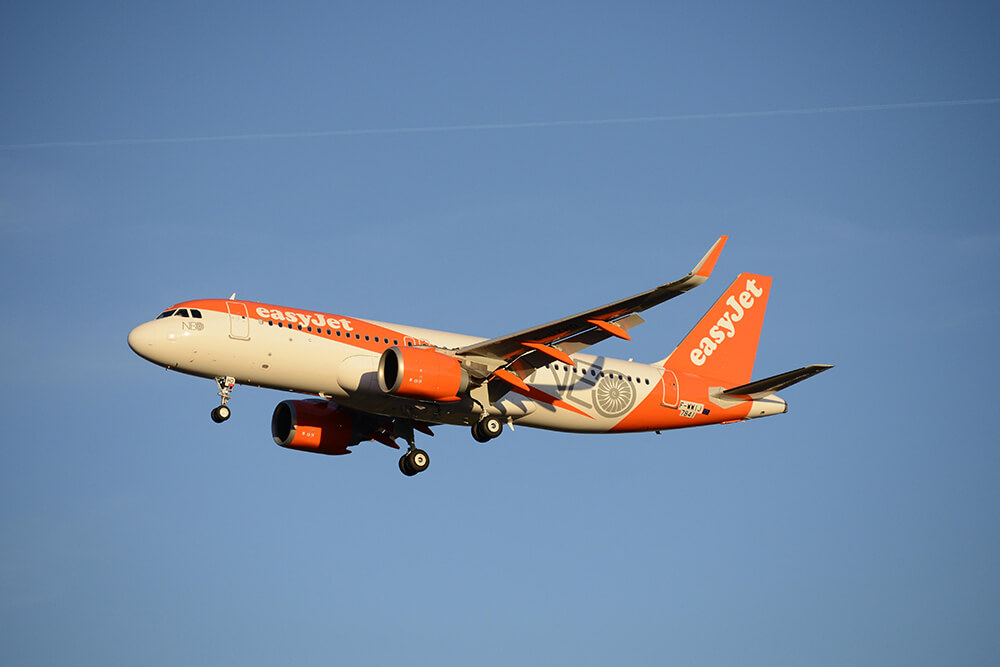easyJet has reported a record number of passengers flown at 88.5 million up +10.2% with a record load factor of 92.9% (2017 92.6%) for the 12 months to the end of September 2018. The airline says this performance wad driven by continued focus on customer offer and easyJet’s primary airports strategy including expansion into Tegel and gaining seven new number one airport positions
Revenue totalled £5,898 million, an increase of 16.8% and revenue per seat has grown by 6.4% to £61.94 (8.3% growth ex-Tegel). The headline cost per seat excluding fuel was up by 5.3% to £43.43 (4.8% increase at constant currency), mainly due to expansion into Tegel, higher levels of disruption and crew cost inflation.
easyJet confirmed that its cost and efficiency programme garnered savings of £107 million (2017 £85m) delivered by leveraging growth, scaling benefits and up-gauging of fleet.
The airline’s headline profit before tax for the year was £578 million, up £170 million or 41.4%. Total headline profit before tax per seat increased by 28.7% to £6.07 per seat. Reported profit before tax increased was £445 million (2017 £385m).
As a result of this strong performance, headline ROCE for the year increased to 14.4%, an improvement of 2.5 percentage points on the prior year. easyJet has proposed a dividend of 58.6 pence (2017 40.9p) an increase of 43% subject to approval by shareholders.
easyJet’s acquisition of part of Air Berlin’s operations at Berlin Tegel completed on 15 December for a consideration of €40 million. The reported total loss before tax of £152 million was described as “better than originally expected on acquisition” by the airline. The headline loss of £112 million was higher than expected but this was offset by lower integration costs of £40 million.
easyJet has agreed with Airbus to take delivery of 17 A320neo firm orders as per its 2013 agreement, which will be funded through a “combination of easyJet's internal resources, cash flow, sale and leaseback transactions and debt”. The airline has also agreed with Airbus to defer the delivery of 18 A320neo aircraft by up to 24 months. easyJet has also exercised 25 A320neo purchase options, which has the primary purpose of securing delivery slots in 2024.
easyJet confirmed that is has disposed of the Group’s ten oldest A319 aircraft via sale-leaseback arrangement that resulted in a loss on disposal of the assets of £11 million and an £8 million maintenance provision catch-up charge.
easyJet is continuing to movefrom 156 seats on an A319 to either 186 seats on an A320neo or 235 seats on an A321neo aircraft, which it expects to deliver a cost per seat saving of up to 13% and 20% respectively. All new easyJet A320 deliveries are fitted with 186 seats, with the first 186-seat A320neo delivered in June 2017. The airline is also retrofitting the existing fleet of 180-seat A320s; and is adding A321neo aircraft to the fleet in July 2018.
easyJet’s total fleet as at 30 September 2018 comprised of 315 aircraft (2017 279 aircraft), of which 42% are A319s, 57% are A320s and 1% are A321s.
easyJet states that it is “confident that its strategy and positioning will deliver substantial value for its shareholders, with a focus on return on capital, positive free cash flow and profit per seat”. The airline’s capacity growth in the first half is forecast at circa 15% and at circa 10% for the full year. Bookings for next summer are described as “promising at this very early stage, slightly ahead of summer 2018”.
easyJet says that it has continued to prepare for Brexit, operating via airlines in the UK, Switzerland and Austria to enable ongoing flying in Europe, and is close to achieving majority EEA (excluding UK) ownership – currently at 47%. Although it states it does not wish to rescind UK voting rights in the event it is forced to do so by EU rules, its Articles of Association do allow it to take such measures if required. “Whilst easyJet has no current intention of exercising these powers, the position will be kept under review pending the outcome of Brexit negotiations between the UK and the EU, along with other options,” the airline says in its results. “easyJet currently expects to take action in respect of its level of ownership by non-qualifying nationals only if there is a real risk of a ‘no-deal’ Brexit in the run up to 29 March 2019 and if the proportion of equity capital held by qualifying nationals.”
The Group reports that it has incurred £7 million in costs associated with establishing its new Airline Operator Certificates (AOCs), principally due to the cost of re-registration of aircraft in Austria as well as legal and overhead costs.

